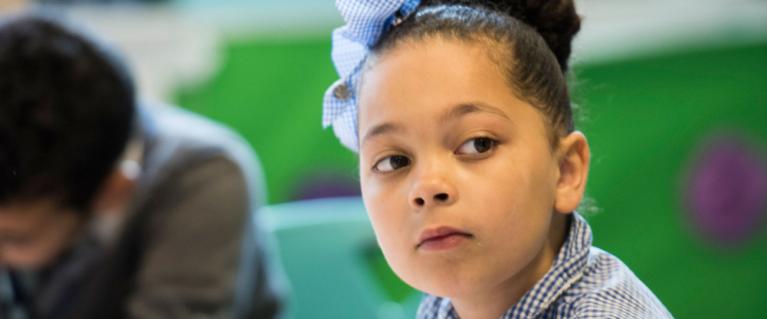
FAQs: Schools for Success
The Mayor wants to recognise the brilliant work teachers, teaching assistants, support staff and governors are doing every day to support children that begin behind their peers.
The programme is not just about recognising exceptional schools, it’s about these schools, our Schools for Success, sharing their expertise with the wider London education community.
By improving the outcomes of pupils who begin with attainment levels behind their peers, these schools are making a significant contribution to reducing educational inequalities and promoting social mobility for young Londoners.
The Mayor has decided to recognise schools that do exceptionally well with low prior attaining pupils. He is encouraging these schools to share the keys to their success with the wider school community, to help improve outcomes for all young Londoners. The aim is to establish a network of excellent London teaching and leadership practice, with a focus on low prior attainment.
Teachers can read about these schools on the website, see them present at events and request to visit them. These offers are open to all London teachers and are free.
Despite London’s strong education results there are many groups that are not achieving as well as their peers. These include pupils with special educational needs and disabilities (SEND), pupils eligible for free school meals (FSM), Looked After Children and those from certain ethnic minorities (such as black Caribbean, Gypsy, Roma and Traveller pupils and white working class pupils).
The best way to achieve a fairer society is to reduce education inequality. It is for this reason the Mayor has decided to recognise schools that are successfully improving the outcomes of low prior attaining pupils and is encouraging them to share their successful approaches.
It is recognised that pupils with low prior attainment present a greater challenge for schools and it is for this reason the Mayor is keen to provide a network to support schools to improve the outcomes for this group.
The Gold Club was a previous programme that recognised schools mainly doing well for disadvantaged pupils. The Schools for Success programme is focused on low prior attaining pupils and the progress that schools make with these pupils. The programme’s CPD element is more system-led, being delivered mainly in conjunction with the teaching schools and boroughs, rather than exclusively at school level.
An annual approach enables us to recognise schools that make significant improvements each year.
Participation is entirely voluntary. Schools for Success have chosen to contribute to the programme, and have produced a profile outlining their approaches. They may also present at events and host visits
We have set the criteria to recognise 6% of London’s primary and secondary schools.
(We have only included primary schools that submit their Key Stage 2 results, and primary and secondary schools that have at least 6 or more low prior attaining pupils.)
A geographical spread is not part of the Schools for Success criteria. However, there were eligible schools found in 30 boroughs.
Whilst this programme has a focus on low prior attaining pupils, we recognise we have no special schools nor AP/PRUs in the programme this year. If you have any suggestions about how we could include these schools in next year’s criteria please contact us at [email protected]
We haven’t excluded these schools from the programme, but no independent and grammar schools satisfied the required criteria this year
The Greater London Authority (GLA) develops the criteria using the Department for Education schools performance tables’ data. The GLA have also drawn on the expert advice of headteachers, directors of children’s services, the teaching schools and other education experts to ensure the criteria is sufficiently rigorous.
The 2020/21 criteria uses the published Department for Education schools performance tables’ data 2019.
The criteria for the Schools for Success programme includes a requirement that schools must be either good or outstanding. In the unlikely event that a school satisfies the other criteria but is not good or outstanding, they will not be asked to join the programme.
The programme is based on the previous year’s results and we recognise that this may change during the year. We will consider any adjustments to a school’s eligibility on a school by school basis.
For primary schools we are using the average progress the school’s low prior attaining cohort made in reading, writing and maths. This is based on progress from key stage 1 – 2.
For secondary schools we are using progress 8.
The Mayor’s Schools for Success programme is driven by performance data so it is not possible for us to include schools that do not have this available. In the case of new schools, they can be considered in subsequent years once their results are reported to the Department for Education.
No, for a small number of schools where their LPA pupils have not reached at least the national average for LPA pupils (6%), we have made contact with these schools and are satisfied with the evidence they provided that they have supported their children to achieve the best they could.
Need a document on this page in an accessible format?
If you use assistive technology (such as a screen reader) and need a version of a PDF or other document on this page in a more accessible format, please get in touch via our online form and tell us which format you need.
It will also help us if you tell us which assistive technology you use. We’ll consider your request and get back to you in 5 working days.